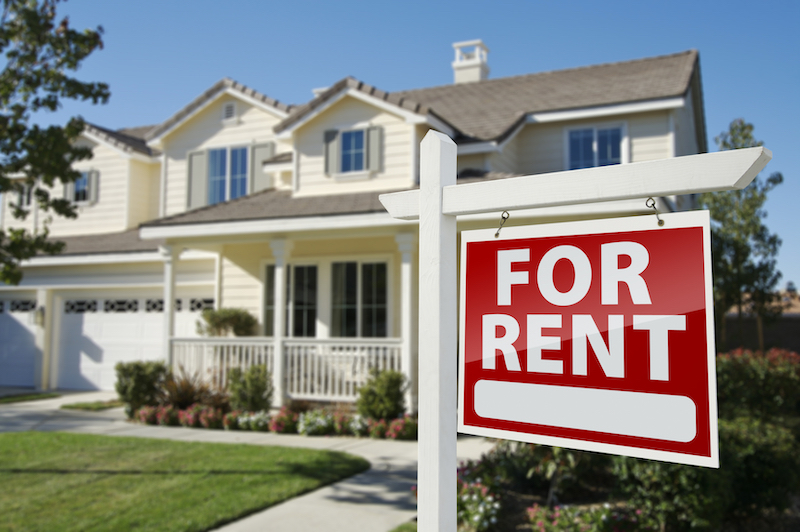To Rent or Sell: What to do When You Are Posted
By Caroline Inman
The decision to sell or rent out your home when you know you are posted is becoming more of a dilemma for many CAF members thinking long-term about the housing market and their likelihood of returning to an area.
In the National Capital Region (NCR), for instance, the road tends to lead back to Ottawa for many cap badges, and having a home there can be beneficial if you know you’ll be posted back at some point.
Selling your house to move to the next place may be the best financial and practical option for you, but if you have the ability to rent out your property while you’re away for two or three years, should you do it, and what do you need to consider?

Leaving the Province?
According to Mary Richardson, owner and principal consultant of property management group The Vacancy Solution, the best course of action is not to go it alone, especially if you’re living out of province.
“There are so many variables which people who don’t do this very often aren’t familiar with,” says Mary, who has worked in the residential housing industry for more than 27 years. “Also, it can be very time-consuming to find the right tenants as well as the right people or services you’ll need to contact on behalf of your tenant if there’s an issue in your absence.”
A property management company should absolve you of all stress, worry, and concern when renting your home out, and for a fee, manage the process for a set period of time or on an ongoing basis. The fees for service will vary from company to company, and some will appear to have a lower rate because services are added on at an extra cost.
Some, like Mary’s, will include many extras from the start, like no additional charge for a spring and fall inspection, bank fees, or 24-hour call service. Larger companies tend to manage condos and buildings, and the management doesn’t know the client. Smaller companies tend to deal with those with one property, which is usually their own, and these companies are in the day-to-day thick of it, personally liaising with clients and personally servicing tenants.
Property Management
“Some people don’t think they need help with renting their home and unfortunately naively believe that there won’t be any issues with their property once they’ve tenants in,” adds Mary. “But it’s not always a blocked sink that you can send a plumber over. In the last few weeks, I have answered questions about garbage, had to sort out unpaid utilities, liaised over a parking violation, talked someone through a frozen lock, and had an electronic keypad changed.”
Property managers often offer a service of finding and qualifying tenants for you, doing all the legwork, thorough screening, and background checks on your behalf. The cost for this is usually 70-100 per cent of one month’s rent. The cost for managing the property once a tenant is in is eight to 10 per cent of the monthly rent. But, again, it depends on what is required of the property manager.

Managing Rental Yourself
If you do want to manage your rental yourself, it’s imperative you brush up on your rights as a landlord, as well as, tenants’ rights for your province. A simple internet search for ‘landlord and tenant rights’ followed by the province should give you access to the information you should study.
Asking for advice from a real estate lawyer is also highly recommended to ensure you’re not overlooking anything. There are Residential Tenancy Agreements for each province, which should also be reviewed and used between you and your tenant, as they are the standard documentation which will be referred to should there be a dispute.
Do Your Homework
Ultimately, doing your homework and ensuring you’ve done your due diligence on your prospective tenants will mitigate some of the risks. Still, as Mary explains, “some of the horror stories you hear about bad tenants is often because no one is regularly checking on site.
She adds, “I know every single one of the homes I look after. I know who the owners are and who the tenants are. And I have a responsibility to both of them to ensure that I am always on top of what is happening.”
Interviewing Rental Companies
If you are looking for a property manager or company, Mary notes it’s essential to trust them and to have good communication with them. Referrals from friends or work colleagues are great.
Once you interview companies, ask:
- What can you expect from them regarding monthly updates and reports, accounting, and an overview of what’s happening with your home?
- Is there a dedicated person assigned to your property,
- Are they contactable to you at all times?
- Can you have at least three references of other landlords to independently speak to?
- What is included in their fees?
Also, you should be confident that they know all the landlord and tenant rules and can guide you and answer your questions through it all.
Pros and Cons
Selling or renting out your home is a personal choice, and both have pros and cons. However, if you know you’re coming back to an area where you have a home, keeping the equity in the property while you’re away and having your mortgage paid is very appealing.

Questions to Answer
Check out local statistics on how hot the housing market is where you are and where you’re going to.
- How many rentals are available, and how quickly do they go? The last thing you want is paying rent somewhere else and your home sitting on the rental market because there’s very low interest or need.
- What has the selling price average been doing the past couple of years, and what are realtors predicting this year?
- Is the market at its peak, and can you make a good profit if you sell?
- Or are the house prices expected to rise, and you might price yourself out of the market if you sell now and have to return in a couple of years?
Only you will know what the best option is for you and your family. But regardless of your choice, having as much information on hand will only be of benefit and ensure you’re making a decision fully prepared.
Resources
For information and rental statistics for cities, regions, and provinces across Canada: visit here. Search <your area> real estate statistics – for average sales prices and changes in markets 2018-2019.
For more info about Mary Richardson and residential leasing and property management services in the Ottawa, ON area visit here.














